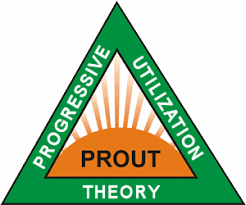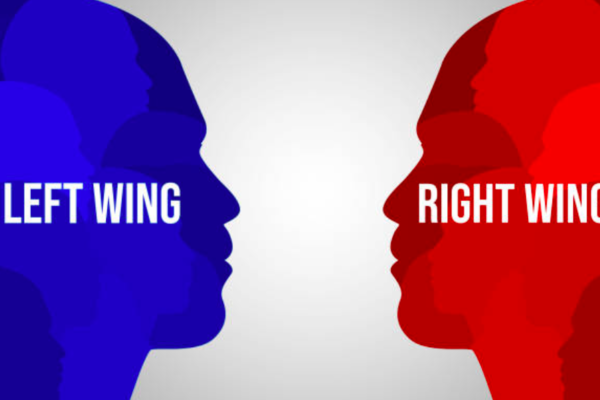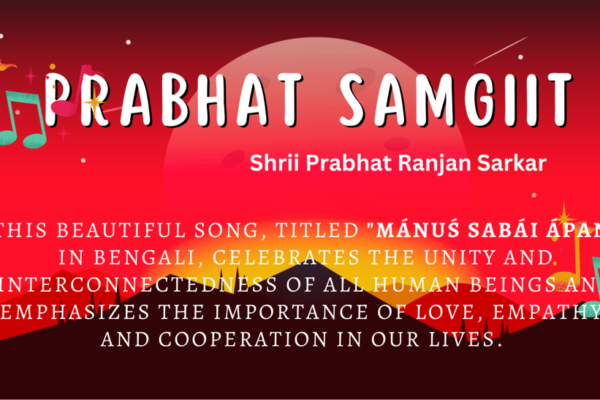– Shri Rajendra

In the hustle and bustle of our modern world, the pursuit of an extravagant lifestyle often takes precedence over the true essence of life itself. We become engrossed in the materialistic aspects of our existence, striving to acquire more wealth, possessions, and social status, often at the expense of our physical, mental, and spiritual well-being. Now a days, success often manifests in tangible ways, exemplified by an elevated standard of living. Climbing the corporate ladder propels us into a world of enhanced comforts, presenting us with the allure of luxurious automobiles, opulent residences, substantial financial reserves, cutting-edge smartphones, exclusive dining experiences, and the possibility of exploring ever more exotic vacation destinations.
A significant portion of our lives is dedicated to the relentless pursuit of happiness through physical pleasure and success. Paradoxically, we often fail to recognize that with each repetition of a particular mundane pleasurable experience, the magnitude of happiness derived from it diminishes. Similarly, the attainment of new milestones, while momentarily exhilarating, leaves us yearning for more, ensnaring us in an endless quest for happiness.
Such joys of life, more often than not, are fleeting and ephemeral. Even the most delectable chocolate chip cookie, rasagolla provides a momentary pleasure that vanishes in an instant.
In today’s world, the concept of the ‘standard of life’ has progressively intertwined with that of the ‘standard of living.’ The perspective through which we view everything has shifted to one centered on the pursuit of pleasure and success. Nevertheless, this narrow focus often fails to genuinely enhance the quality of our lives.
So, what is the way out?
In this article, we will explore the concept of elevating life, not just lifestyle, by delving into the physical, mental, and spiritual dimensions of human existence. Our journey aims to promote a holistic perspective that is essential for the betterment of an individual and humanity as a whole.
Scriptures Says:
Sukhaḿ váiṋchati sarvo hi tacca dharma samudbhútah;
Tasmáddharma sadákárya sarvavarńae prayatnatah.
The meaning of the Sloka is ,”The urge for happiness is a natural instinct for every created being. Every living being strives to attain happiness and avoid sorrow. All of the world`s created beings are engaged in a constant endeavour to attain peace and happiness.”
The propounder of PROUT (Progressive Utilization theory) Shrii Prabhat Ranjan Sarkar says, ”Human existence is trifarious. A human being has got a spiritual body, psychic body and quinquelemental body – the physical structure – hands, legs, ears, nose, etc. When the flow is for the Supreme Desideratum ( Anandam, Infinite happiness) there must be an adjustment amongst these three flows of human spirit, human mind, and human entity. There must be parallelism between spiritual flow and the psychic, and there must be parallelism between psychic wave and the entitative wave.”
Philosophers and logicians of the past used to say that man is a rational animal; that is, man is also an animal, but this animal is guided by rationality. But as per Ananda Marga philosophy, man is not an animal. Plants have got lives, but plants are not animals, because there is no mobility in them. Animals can move and the mental faculty is also a bit developed. Man also can move, and the mental faculty is still more developed. But the difference between man and animal, the fundamental difference between man and animal, is that man (human life is an ideological flow) moves towards spirituality, and for an animal there is no spirituality – only eating, drinking, sleeping, and dying.
Humans are the most developed, the most intelligent of all beings. They most certainly cannot be classified as animals. What is the fundamental difference between human beings and animals? An animal`s pleasure is predominantly body-centered. If they are given good food and a comfortable place to sleep, they are very happy. Very few animals bother about the pursuit of mental peace. This is not true of humans, however, as they are intelligent beings. They know that worldly happiness is limited and will not provide them with eternal happiness. From time immemorial, since the advent of human life, they have been on a quest for eternal happiness. This quest has taught them that mundane pleasures – good food, comfortable accommodation, etc. – will never last long.
What is the source of permanent happiness?
Only that object which is itself unlimited can provide unlimited and permanent happiness to human beings. How can a finite object give infinite happiness? Today it exists; tomorrow it disappears. “Yah agacchati sah gacchati” – Whatever comes, goes. Every finite object comes and ultimately goes. When you come in contact with an infinite entity you will continue to enjoy eternal happiness even though you are a finite entity. How much mundane knowledge will a person in quest for knowledge be able to absorb? Mundane knowledge is limited to books. Suppose there are a billion books in the world: the amount of knowledge they contain is limited. Even if there were two billion books, the knowledge they contained would still be limited. But intuitional knowledge (brahmavidya or brahmavigyana) is unlimited. In the scriptures, brahmavidya is called vigyan (spiritual science). The other branches of science from which people obtain mundane knowledge are termed avidya in Sanskrta. Unless people attain that infinite entity, they will never be able to attain permanent happiness.
The way in which people think varies from individual to individual. The thought processes of sub-human creatures flow in four directions – towards food, sleep, survival, and procreation. Broadly speaking, human thought moves in five directions – towards food, sleep, survival, procreation and dharma (spiritual practice). Morality is the foundation of Sadhana (spiritual practice).
For a Sadhaka (spiritual aspirant) sadhana, in its very start, requires mental equilibrium. This sort of mental harmony may also be termed morality.
Swami Vivekananda emphasized that it’s not a matter of abstaining from owning property, necessary possessions, or even luxuries, but it’s vital never to harbor misconceptions about ownership and possession. In his view, everything ultimately belongs to the Divine.
While practicing spiritual meditation mind expands, and time comes when attitude of a spiritualist is represented in scriptures as cosmic outlook:
“Hararme Pitá Gaorii Mátá svadesha bhuvanatrayam”
Meaning is,“Parama Puruśa [Supreme Consciousness] is my father, Paramá Prakrti [Supreme Operative Principle] is my mother, and the universe is my homeland. We are all citizens of this universe.”
None of the movable or immovable property of this universe belongs to any particular individual; everything is the common patrimony of all, and the father of all is Brahma (cosmic Consciousness). All living beings can enjoy their rightful share of this property, like members of a joint family. As members of a joint family, human beings should safeguard this common property in a befitting manner and utilize it properly. They should also make proper arrangements so that everyone can enjoy it with equal rights, ensuring that all have the minimum requirements of life to enable them to live in a healthy body with a sound mind.
When we infuse our every action and possession with a divine perspective, the entire landscape of our lives undergoes a profound transformation. The world, instead of appearing as a realm of suffering and distress, can be perceived as a heavenly abode.
This shift in our outlook has the potential to elevate the quality of our lives significantly. However, it’s a process that demands time and dedication to develop a genuinely God-centered attitude, free from any sense of personal ownership. The path to cultivating this perspective is through a spiritual journey, wherein we strive to tame and control the innate tendencies of selfishness, greed, jealousy, pettiness, anger, and attachment within ourselves. As we progress along this path of spirituality, our higher self begins to manifest, and our heart expands.
Until we reach this stage, comprehending the true, holistic meaning of dharma—comprising virtues like nobility, compassion, gratitude, forgiveness, patience, and love for all other beingscan be challenging. Neglecting this comprehensive aspect of our dharma leaves us vulnerable to misery and discontent, ensnared by the dominance of our egos. Therefore, the only viable solution is to redirect the inherent outward inclinations of our minds and make them inward-focused. This is attainable through mindful introspection we call spiritual meditation, spiritual cult, and the adoption of a selfless service-oriented lifestyle, allowing us to cultivate a harmonious relationship with our own minds.
Shrii Shrii Anandamurtiji Says,” All the psychological diseases of humanity are the result of not having bhúmadrśt́i (Cosmic outlook) in life. The diseased persons do not consider others, but think only about themselves. They are busy thinking about their own families, employers, etc., and they forget everyone else. This is a terrible malady. But it is a mere expression and symptom of narrow-mindedness, the real root and reason for psychological disease. The cure is to reverse the trend of behaviour to rid the fallen human beings of narrow-mindedness. The medicine is one and only one: Brahmabháva [ideation on Supreme Consciousness].”
In fact, the ignorance of Brahmavada (intuitional science) and dharma has done enormous harm to the human race. In modern civilized society the same thing should not be allowed to be repeated. By accepting the all-pervasive and all-permeating Brahma as the primordial factor for the crude, subtle and causal worlds; by realizing Brahma as the nucleus of the enjoyer, the enjoyed and the enjoyment; and by keeping the Supreme Cognition fixed before the mind, human life should be rebuilt on a strong foundation. All spheres of life should be completely restructured. All feelings of differentiation – his god, her god, the Hindu`s Hari and the Muslim`s Allah – should be abandoned and that Supreme Entity accepted from the core of one`s heart. That Supreme Imperishable Entity is the final desideratum, the culminating point of all entities. We should not bother the least who addresses Him as Hari or who addresses Him as Allah.
Those whose existence is filled with cosmic ideation do not and cannot support any discrimination regarding Parama Purusa and His creation. He or she loves all and hates none, that is the stage of infinite happiness.
A serene and unwavering state of mind serves as a formidable and unwavering force, akin to a trusted friend, on our journey to uplift the quality of our lives and draw closer to a God-centered perspective. Such a composed mindset acts as a guiding light, leading us along the path of spiritual growth and self-realization. In this transformed state of consciousness, we begin to see the world through the lens of the divine, recognizing the intrinsic connection of all things to a higher power. This divine vision results in a harmonious coalescence of an elevated standard of life and an enriched standard of living.
The harmony between these two aspects signifies that our existence transcends mere material wealth and physical comforts. It implies that while we may enjoy the fruits of our labor, we do so with a profound awareness of the spiritual dimension that infuses our actions and possessions. This union of spiritual growth and worldly prosperity forms the foundation of a life marked by inner peace and deep fulfillment.
In this state of being, the pursuit of pleasure and success takes on a new dimension. It is no longer a frantic chase for fleeting moments of gratification but a purposeful journey that combines the pursuit of excellence in the material realm with an unwavering commitment to inner growth and spiritual realization. As a result, the outcome is singular and profound: a life characterized by enduring peace and a sense of profound fulfillment. In the convergence of these elements, we find a state of being that transcends the transitory and empowers us to embrace the true essence of a God-centered existence. One becomes established in bhakti through Bhagavata seva, by serving Bhagavan (by serving His created beings). So, what should be the spirit of a devotee? What should be the spirit of the unit? Atmamoksartham jagat hitaya cha. “One will meditate on the Supreme to become one with the Supreme, and at the same time, to purify one`s mind, one is to render selfless service to human society.” Without rendering selfless service to society, one cannot come in close proximity to the Supreme. And without practising meditation, one cannot render selfless service to society. So, one should remember that one`s motto in life is Atmamoksartham jagat hitaya cha (Self-realization and service to all).
By becoming physically fit (by following spirituality as a practice, such as Ashtanga Yoga Sadhana), becoming mentally strong (with a deep conviction that spirituality is an essential aspect of life), and spiritually elevated while serving the entire creation (embracing spirituality as a life mission), one can integrate these principles into one’s lifestyle. This path leads to being immersed in infinite happiness, the bliss of cosmic consciousness, and the fulfillment of the very purpose of our human life.





